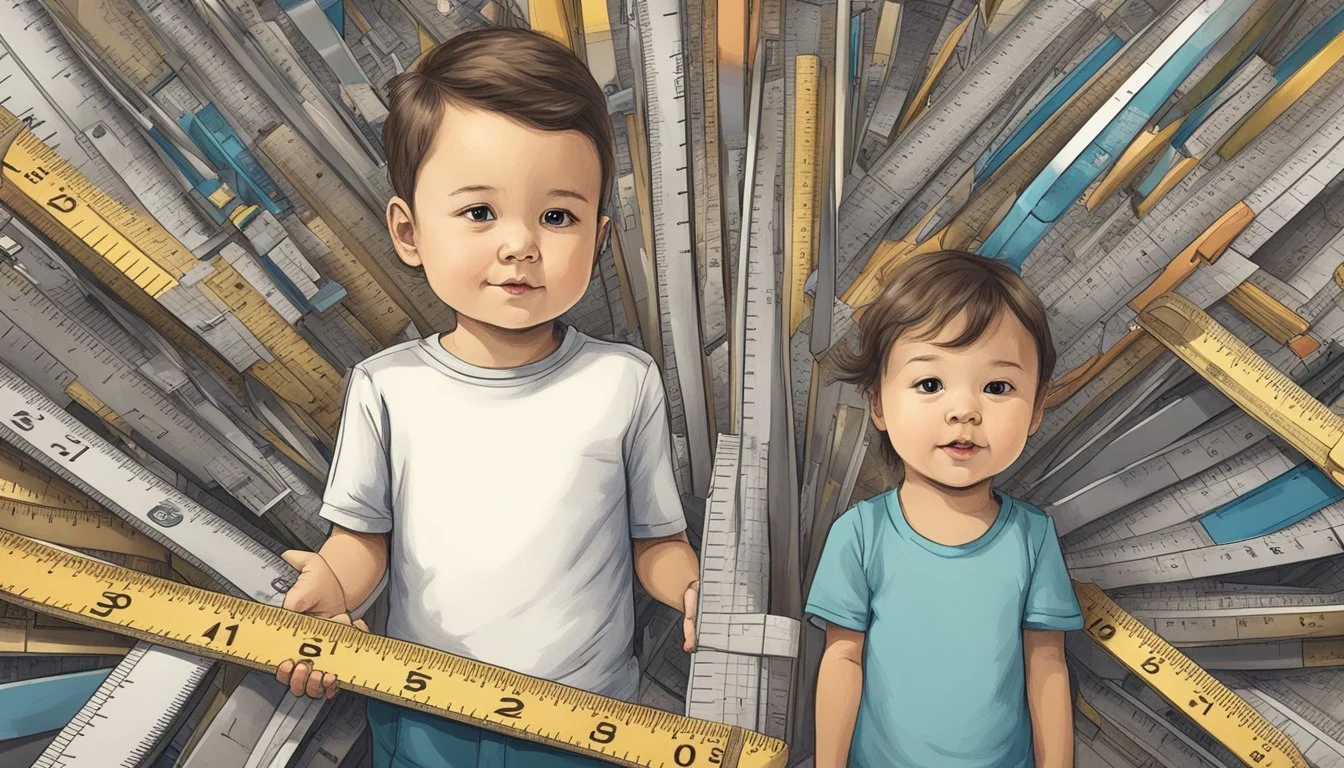40 Signs of Gaslighting Parents: Breaking Free from Toxic Family Dynamics
Gaslighting is a form of emotional manipulation that can occur within families, particularly between parents and children. This psychological tactic involves making someone question their own perceptions, memories, or understanding of reality. When parents engage in gaslighting behaviors, it can have profound and long-lasting effects on their children's mental health and well-being.
Recognizing the signs of gaslighting from parents and learning effective strategies to cope with this behavior are crucial steps for individuals seeking to protect their emotional health and establish healthier relationships. Understanding common examples of parental gaslighting can help people identify problematic patterns in their own families and take steps to address them. By developing awareness and implementing appropriate responses, those affected by gaslighting parents can work towards healing and building stronger boundaries.
1) Denying Reality
Gaslighting parents often deny reality as a core manipulation tactic. They may flatly reject events or conversations that actually occurred, leaving their child confused and doubting their own memories.
A parent might insist, "I never said that" when confronted about a hurtful comment they clearly made. They may claim promised activities or gifts never existed, despite evidence to the contrary.
This denial can extend to more serious issues as well. A gaslighting parent might refuse to acknowledge abuse, neglect, or family problems that are obvious to others.
Over time, this persistent denial of reality can severely impact a child's sense of trust in their own perceptions and experiences. The child may start to question their sanity or believe they are somehow defective for remembering things "incorrectly."
Recognizing this tactic is an important first step for those dealing with gaslighting parents. Maintaining a strong support system and possibly seeking therapy can help reinforce one's grip on reality in the face of such manipulation.
2) Blaming the Child
Gaslighting parents often shift responsibility for family problems onto their children. They may accuse the child of causing conflicts or creating stress within the household.
These parents might claim their child's behavior is the root of all family issues. For example, they may say, "If you weren't so difficult, our family would be happy."
Another tactic is attributing their own shortcomings to the child. A parent might state, "I can't focus at work because you're always misbehaving at school."
Gaslighting parents may also blame their children for their own emotional states. They might say, "You make me so angry" or "Your attitude is ruining my day."
This constant blame can lead children to internalize guilt and feel responsible for situations beyond their control. It can damage their self-esteem and create a distorted sense of reality.
Recognizing this pattern is crucial for children to protect their mental health and understand that they are not responsible for their parents' actions or emotions.
3) Withholding Love
Withholding love is a particularly damaging form of emotional manipulation used by gaslighting parents. This tactic involves deliberately withdrawing affection, praise, or support from a child as a means of control or punishment.
Parents who engage in this behavior may refuse to hug their child, ignore their accomplishments, or withhold verbal expressions of love. They might also use conditional love, only showing affection when the child meets certain expectations or behaves in a specific way.
This form of emotional abuse can have long-lasting effects on a child's self-esteem and ability to form healthy relationships. Children subjected to love withholding may develop insecure attachment styles and struggle with feelings of worthlessness.
Recognizing this behavior is crucial for those dealing with gaslighting parents. It's important to understand that a parent's love should not be contingent on meeting their demands or expectations.
Seeking support from trusted friends, family members, or mental health professionals can help individuals cope with the effects of love withholding. Establishing clear boundaries and prioritizing self-care are also essential steps in healing from this type of emotional abuse.
4) Constant Criticism
Constant criticism is a common tactic used by gaslighting parents to undermine their child's self-esteem and confidence. These parents frequently find fault with their child's appearance, behavior, or achievements, no matter how minor.
They may critique their child's clothing choices, hairstyles, or physical features. Comments like "You'd look so much better if you lost some weight" or "Why can't you dress more like your sister?" are typical examples.
Academic or extracurricular performance is often a target for criticism. Even when a child excels, gaslighting parents might say things like "An A-minus? Why couldn't you get a full A?" or "Second place isn't good enough."
These parents may also criticize their child's personality traits or emotions. Statements such as "You're too sensitive" or "Stop being so dramatic" invalidate the child's feelings and experiences.
The constant stream of negative feedback can lead children to doubt their own worth and abilities. Over time, this can result in low self-esteem, anxiety, and difficulty trusting their own judgment.
5) Playing Victim
Gaslighting parents often employ the tactic of playing the victim to manipulate their children. They may consistently portray themselves as the wronged party in any conflict or situation.
These parents deflect responsibility for their actions by claiming to be mistreated or misunderstood. They might exaggerate minor issues or fabricate scenarios where they appear to be the injured party.
By playing the victim, gaslighting parents shift blame onto their children. This can lead to feelings of guilt and confusion in the child, who may begin to doubt their own perceptions of events.
Children of gaslighting parents may find themselves constantly apologizing or trying to make amends for perceived wrongs. This dynamic can create a cycle of emotional manipulation that is difficult to break.
Recognizing this behavior is crucial for those dealing with gaslighting parents. Setting clear boundaries and seeking support from trusted individuals or professionals can help counter the effects of this manipulative tactic.
6) Twisting Facts
Gaslighting parents often manipulate reality by distorting or misrepresenting facts. They may selectively recall events, omit crucial details, or fabricate information to suit their narrative.
This tactic can leave children feeling confused and doubting their own memories. Parents might claim, "That never happened" or "You're remembering it wrong" when confronted with their past actions.
They may also reframe situations to shift blame onto the child. For instance, if a parent forgets to pick up their child from school, they might say, "You should have reminded me. It's your fault for not calling."
Twisting facts can extend to minimizing a child's accomplishments or exaggerating their mistakes. A parent might downplay their child's academic success while inflating minor behavioral issues.
This behavior erodes the child's trust in their own perceptions and can lead to long-term difficulties in discerning truth from manipulation. Recognizing this tactic is crucial for children to maintain their sense of reality and self-trust.
7) Silent Treatment
The silent treatment is a common tactic used by gaslighting parents. It involves deliberately ignoring or refusing to communicate with their child as a form of punishment or control.
Parents may withhold affection, conversation, or acknowledgment for extended periods. This leaves the child feeling isolated, confused, and anxious about what they did wrong.
The silent treatment can be especially damaging to children who rely on their parents for emotional support and guidance. It creates an unpredictable environment where the child never knows when communication will be cut off.
Over time, this behavior can lead to feelings of worthlessness and self-doubt in the child. They may begin to constantly question their actions and try to appease their parent to avoid triggering another episode of silence.
Children subjected to the silent treatment often internalize blame for their parent's behavior. They may go to great lengths to "fix" the situation, even when they weren't at fault.
This form of emotional manipulation can have long-lasting effects on a child's self-esteem and ability to form healthy relationships later in life. Recognizing this behavior is an important step in addressing parental gaslighting.
8) Invalidating Feelings
Gaslighting parents often dismiss or trivialize their children's emotions. They may tell a child they're overreacting or being too sensitive when expressing genuine feelings.
These parents might say things like "You're not really upset" or "Stop crying, it's not a big deal." Such statements can make children doubt their own emotional experiences.
Some parents invalidate feelings by comparing their child's problems to others. They might say, "Other kids have it much worse, so you shouldn't feel bad."
Invalidating feelings can also take the form of minimizing accomplishments. A parent might respond to their child's excitement over an achievement with indifference or criticism.
Over time, this behavior can lead children to suppress their emotions or feel ashamed for having them. It may result in difficulty identifying and expressing feelings in adulthood.
Children of parents who invalidate feelings may struggle with self-doubt and low self-esteem. They might question the legitimacy of their own experiences and emotions.
9) Overreacting to Minor Issues
Gaslighting parents often exhibit disproportionate reactions to minor issues or mistakes. They may turn small incidents into major crises, creating an atmosphere of tension and anxiety.
These parents might explode with anger over a spilled drink or a misplaced item. Their extreme responses can leave children feeling confused and fearful, unsure of what might trigger the next outburst.
By overreacting, gaslighting parents instill a sense of walking on eggshells in their children. This constant state of alertness can lead to long-term anxiety and stress for the child.
Children may begin to doubt their own judgment and perception of events. They might start to believe that their actions are truly catastrophic, even when they're not.
This behavior from parents can also serve as a form of control. By creating drama around minor issues, they keep their children off-balance and more easily manipulated.
Recognizing this pattern is crucial for children of gaslighting parents. Understanding that these reactions are disproportionate can help maintain a clearer perspective on reality.
10) Undermining Confidence
Gaslighting parents often employ tactics to undermine their children's confidence. They may consistently doubt their child's abilities or dismiss their achievements.
These parents might frequently criticize their child's efforts, making them feel inadequate. They may compare their child unfavorably to siblings or peers, eroding self-esteem.
Some gaslighting parents invalidate their child's emotions, telling them they're overreacting or being too sensitive. This can lead children to question their own feelings and perceptions.
Parents who undermine confidence may also discourage their child from pursuing goals or interests. They might claim certain activities are beyond the child's capabilities, limiting their growth.
Another tactic involves setting unrealistic expectations and then expressing disappointment when the child inevitably falls short. This creates a cycle of perceived failure and self-doubt.
Gaslighting parents may also take credit for their child's successes while blaming them for any failures. This inconsistent feedback further confuses the child and weakens their self-assurance.
11) Playing Favorites
Playing favorites is a common tactic used by gaslighting parents to manipulate their children. This behavior involves consistently showing preference for one child over others, often in subtle ways.
Parents may lavish praise and attention on the "golden child" while criticizing or ignoring their other children. They might make comparisons, saying things like "Why can't you be more like your sister?"
This creates an unhealthy dynamic of competition and resentment between siblings. The favored child may develop an inflated sense of self-importance, while others struggle with feelings of inadequacy.
Gaslighting parents sometimes alternate which child is the favorite, further destabilizing family relationships. This unpredictability leaves children constantly seeking approval and validation.
The effects of parental favoritism can be long-lasting. Children may internalize the message that they are less worthy of love and develop low self-esteem. As adults, they may struggle with relationships and continue to seek external validation.
Recognizing this behavior is an important step in addressing its impact. Children of gaslighting parents can work on building self-worth independent of parental approval and developing healthy boundaries.
12) Making Unreasonable Demands
Gaslighting parents often place unreasonable demands on their children. These demands can be extreme, inconsistent, or impossible to meet.
For example, a parent might insist their child maintain perfect grades while also participating in multiple extracurricular activities and handling household chores. This creates a constant state of stress and anxiety for the child.
Some gaslighting parents set arbitrary rules that change frequently. They may punish their children for not following rules that were never clearly communicated.
Another tactic is demanding absolute obedience and compliance from their children. This leaves no room for the child's individual thoughts, feelings, or autonomy.
Gaslighting parents might also make excessive financial demands on adult children. They may guilt their children into providing financial support beyond what is reasonable or affordable.
These unreasonable demands serve to keep the child off-balance and dependent on the parent's approval. The child often feels they can never measure up, no matter how hard they try.
Recognizing these unreasonable demands is an important step in addressing gaslighting behavior. Children of gaslighting parents may need support in setting healthy boundaries and understanding that these demands are not normal or acceptable.
13) Impossible Standards
Gaslighting parents often set unrealistic expectations for their children. They may demand perfection in academics, sports, or other areas of life.
These parents frequently compare their child to others, highlighting perceived shortcomings. They might say things like, "Why can't you be more like your cousin?" or "Your sister never struggled with math."
Children subjected to impossible standards may develop anxiety and low self-esteem. They learn to doubt their abilities and feel like they can never measure up.
Gaslighting parents may dismiss or minimize their child's accomplishments. Even when the child achieves something significant, it's never quite good enough.
These parents might constantly change the goalposts. As soon as one standard is met, they raise the bar even higher, creating a cycle of perpetual inadequacy.
Children may internalize these impossible standards, becoming perfectionists or developing imposter syndrome later in life. They may struggle to recognize their own worth and achievements.
14) Using Guilt
Gaslighting parents often employ guilt as a manipulative tactic to control their children's behavior and emotions. They may blame their children for their own unhappiness or failures, making the child feel responsible for the parent's emotional state.
These parents might use phrases like "If you don't do this, I'll be so disappointed in you" or "After all I've done for you, this is how you repay me?" Such statements leverage the child's empathy and concern against them, creating a sense of obligation.
Parents who use guilt may also compare their child unfavorably to others, implying that the child's actions are causing them distress. For example, they might say, "Why can't you be more like your sister? She never makes me worry."
This tactic can lead children to feel constantly anxious about disappointing their parents. They may develop a habit of putting their parents' needs before their own, even into adulthood.
Recognizing this form of emotional manipulation is crucial for children of gaslighting parents. It's important to understand that a parent's happiness is not the child's responsibility, and guilt should not be used as a tool for control.
15) Emotional Blackmail
Emotional blackmail is a manipulative tactic used by some gaslighting parents to control their children's behavior. It involves using guilt, fear, or obligation to pressure the child into compliance.
Parents may threaten to withdraw love or support if their demands aren't met. They might say things like, "If you really loved me, you would do this for me."
Another common approach is to make exaggerated predictions of negative consequences. For example, "If you don't follow my advice, you'll ruin your entire life."
Some parents use self-pity to manipulate their children. They might claim, "After all I've done for you, this is how you repay me?"
Emotional blackmail can severely impact a child's self-esteem and decision-making abilities. It creates a constant state of anxiety and guilt.
To deal with this behavior, children can learn to recognize emotional blackmail tactics. Setting clear boundaries and seeking support from trusted individuals can help maintain emotional well-being.
16) Belittling Achievements
Gaslighting parents often downplay their children's accomplishments. They may dismiss good grades, athletic victories, or artistic creations as insignificant or unimpressive.
These parents might compare their child unfavorably to siblings or peers. They may say things like "Your sister got straight A's, why can't you?" or "I'm sure other kids did better."
Sometimes, gaslighting parents attribute their child's successes to luck or external factors. They might claim the test was easy or that teachers showed favoritism, rather than acknowledging their child's hard work.
When children share exciting news, these parents may respond with indifference or criticism. Instead of praise, they might focus on perceived shortcomings or areas for improvement.
This behavior can erode a child's self-esteem and confidence over time. Children may begin to doubt their abilities and question the value of their efforts.
To cope, children can seek validation from other trusted adults or mentors. They can also practice self-affirmation and learn to recognize their own achievements, regardless of parental approval.
17) Comparing to Others
Gaslighting parents often employ comparison tactics to manipulate their children's self-perception. They may frequently compare their child to siblings, friends, or other relatives in an unfavorable light.
These parents might make statements like, "Your brother always gets straight As. Why can't you be more like him?" or "Look at how well-behaved your cousin is. You should learn from her."
Such comparisons can erode a child's self-esteem and create feelings of inadequacy. The child may internalize these messages and believe they are inherently flawed or not good enough.
Parents who engage in this behavior may also use comparisons to pit siblings against each other. This can lead to rivalries and strained relationships within the family.
To deal with this form of gaslighting, children can try to recognize that these comparisons are unfair and not reflective of their true worth. It's important to remember that everyone has unique strengths and weaknesses.
Seeking support from trusted friends, teachers, or counselors can provide alternative perspectives and help build resilience against these harmful comparisons.
18) Exaggerating Faults
Gaslighting parents often magnify their children's mistakes or shortcomings. They focus excessively on minor flaws, blowing them out of proportion to undermine the child's self-esteem.
These parents may constantly criticize their child's appearance, grades, or behaviors. For example, a parent might say, "You got a B on your test? Why can't you ever get an A like your sister?"
By exaggerating faults, gaslighting parents create a distorted reality where the child feels inadequate and unworthy. This tactic can lead to anxiety, self-doubt, and low self-confidence in children.
Parents may also compare their child unfavorably to siblings or peers, emphasizing perceived weaknesses. They might say, "Look at how well-behaved your cousin is. Why can't you be more like her?"
This behavior can make children feel they are never good enough, no matter how hard they try. It can create a constant state of stress and fear of disappointing their parents.
Recognizing this pattern is crucial for children to protect their mental health and develop a realistic self-image. Seeking support from trusted adults or professionals can help counteract the negative effects of this gaslighting tactic.
19) Creating Self-Doubt
Gaslighting parents often employ tactics to instill self-doubt in their children. They may frequently question their child's memories, perceptions, or abilities, causing them to second-guess themselves.
These parents might make statements like, "Are you sure that's what happened? I think you're remembering it wrong." This undermines the child's confidence in their own experiences and judgments.
Another method involves dismissing or minimizing the child's feelings. A parent might say, "You're overreacting" or "You're too sensitive," leading the child to doubt their emotional responses.
Gaslighting parents may also compare their child unfavorably to others, fostering insecurity. They might say, "Why can't you be more like your sister?" or "Your cousin never has these problems."
By consistently contradicting or challenging the child's thoughts and feelings, these parents create an environment where the child struggles to trust their own judgment. This can have long-lasting effects on the child's self-esteem and decision-making abilities.
20) Intrusive Behavior
Gaslighting parents often exhibit intrusive behavior, disregarding their children's personal boundaries. They may enter their child's room without knocking or read private messages and diaries without permission.
These parents frequently make decisions for their children without considering their opinions or desires. They might choose their child's friends, hobbies, or even career path, insisting they know best.
Intrusive behavior can extend to controlling a child's appearance. Parents may dictate how their child dresses, wears their hair, or presents themselves, dismissing the child's preferences.
Some gaslighting parents monitor their children excessively, demanding constant updates on whereabouts and activities. This behavior can continue well into adulthood, with parents expecting detailed information about their grown children's lives.
Intrusive parents often insert themselves into their children's relationships, offering unsolicited advice or criticizing partners. They may attempt to manipulate these relationships to maintain control over their child.
To deal with intrusive behavior, children can establish clear boundaries and communicate them firmly. Learning to say "no" and enforcing consequences for boundary violations is crucial. Seeking support from trusted friends or a therapist can provide additional strategies for managing intrusive parents.
21) Gaslighting Over Conflicts
Gaslighting parents may manipulate conflicts to maintain control and avoid accountability. They often deny or downplay disagreements, making their child question their own memory or perception of events.
These parents might claim arguments never happened or insist their child is overreacting. They may shift blame onto the child, accusing them of being too sensitive or misunderstanding the situation.
In some cases, gaslighting parents rewrite the narrative of conflicts to portray themselves as victims. They might exaggerate or fabricate details to support their version of events, leaving the child confused and doubting their own recollection.
Parents who gaslight during conflicts may also use guilt tactics. They might accuse the child of being ungrateful or causing family discord when the child attempts to address issues.
To deal with this behavior, children can keep a record of conflicts and their own experiences. This documentation can help validate their memories and perceptions when faced with gaslighting attempts.
Seeking support from trusted friends, family members, or a therapist can provide valuable perspective and validation. Learning to trust one's own experiences and feelings is crucial in countering the effects of gaslighting over conflicts.
22) Isolation from Friends
Gaslighting parents sometimes employ tactics to isolate their children from friends and social connections. They may criticize or belittle a child's friends, making them seem unworthy or harmful influences. This can cause the child to doubt their own judgment in choosing friends.
Parents might also create obstacles that prevent their children from spending time with peers. They may impose unreasonable restrictions on outings or refuse to provide transportation to social events. Some parents go as far as monitoring their child's communications or forbidding certain friendships outright.
By limiting social interactions, gaslighting parents aim to maintain control over their child's perceptions and experiences. This isolation can leave children feeling lonely and dependent on their parents for emotional support, further reinforcing the parent's influence.
Children in these situations may struggle to develop healthy social skills and form lasting relationships outside the family. They might internalize the belief that they are unworthy of friendships or that others cannot be trusted, impacting their social development well into adulthood.
23) Spying on Private Life
Gaslighting parents may invade their child's privacy by monitoring their activities, conversations, and personal spaces. This behavior often stems from a desire to control and manipulate the child's life.
Parents might read their child's diaries, text messages, or emails without permission. They may also eavesdrop on phone calls or conversations with friends, seeking information to use against the child later.
Some parents install tracking devices on their child's phone or car, claiming it's for safety reasons. In reality, this excessive monitoring allows them to question the child's whereabouts and activities, fostering doubt and insecurity.
Gaslighting parents might search through their child's belongings, looking for "evidence" of misbehavior. They may then confront the child with their findings, twisting the information to fit their narrative.
To deal with this invasion of privacy, children can set clear boundaries and communicate their need for personal space. If possible, they should secure their personal items and digital accounts with passwords or locks.
24) Public Humiliation
Public humiliation is a tactic some gaslighting parents employ to undermine their child's self-esteem and exert control. These parents may criticize or mock their child in front of others, intentionally embarrassing them.
They might share private information or make fun of their child's appearance, abilities, or interests in social settings. This behavior can occur at family gatherings, school events, or even on social media platforms.
The goal is often to make the child feel small and powerless. By belittling them publicly, gaslighting parents reinforce their dominance and manipulate the child's perception of reality.
Children subjected to public humiliation may develop anxiety in social situations and struggle with self-confidence. They might become hesitant to express themselves or participate in activities for fear of ridicule.
To cope with this behavior, children can try to establish boundaries and limit their exposure to such situations when possible. Seeking support from trusted friends, family members, or professionals can also help counteract the negative effects of public humiliation.
25) Unpredictable Mood Swings
Parents who gaslight often display erratic mood changes that keep their children constantly on edge. These sudden shifts can range from cheerful to angry without apparent reason.
Children learn to tread carefully, never knowing what emotional state to expect. This unpredictability creates an atmosphere of anxiety and fear in the home.
The gaslighting parent may use these mood swings as a tool for control. They might shower affection one moment, then withdraw it abruptly the next.
This behavior leaves children confused and desperate to please their parent. They may blame themselves for the parent's changing moods, internalizing guilt and shame.
Over time, exposure to unpredictable parental emotions can damage a child's sense of security and self-worth. It may lead to difficulty trusting others or forming stable relationships later in life.
Recognizing this pattern is an important step for adult children of gaslighting parents. Seeking support from a therapist or support group can help process these experiences and begin healing.
26) Hoovering Tactics
Hoovering is a manipulative tactic used by gaslighting parents to regain control over their children. This behavior is named after the vacuum cleaner brand, as it aims to "suck" the child back into the toxic relationship.
Gaslighting parents may employ various hoovering techniques to maintain their influence. Love bombing is a common method where they suddenly shower their child with affection, compliments, and gifts.
Another tactic involves making grand apologies for past behavior. The parent might promise positive changes and present a facade of remorse to lure the child back into their orbit.
Guilt-tripping is also frequently used in hoovering attempts. The parent may claim they are ill, lonely, or struggling without the child's presence, playing on emotions to elicit a response.
Some gaslighting parents resort to threats or ultimatums as part of their hoovering strategy. They might manipulate other family members or spread false information to pressure the child into reconnecting.
Recognizing these hoovering tactics is crucial for maintaining boundaries and protecting oneself from further emotional manipulation by gaslighting parents.
27) Gaslighting with Siblings
Gaslighting parents may use siblings as tools to manipulate and control their children. They often pit siblings against each other, creating a toxic family dynamic.
Parents might favor one child while dismissing the experiences of another. This can lead to confusion and self-doubt for the targeted sibling.
Sometimes, parents encourage siblings to participate in the gaslighting. They may ask one child to confirm their version of events, invalidating the other child's perspective.
Gaslighting parents might also use comparisons between siblings to undermine confidence. They may praise one child excessively while criticizing another, fostering resentment and insecurity.
In some cases, parents rewrite family history, causing siblings to question their shared memories. This tactic can create divisions and make it difficult for siblings to support each other.
Recognizing these patterns is crucial for siblings to maintain healthy relationships with each other. Open communication and validation of each other's experiences can help counteract the effects of parental gaslighting.
28) Parental Alienation
Parental alienation is a form of gaslighting that occurs when one parent manipulates a child to reject or fear the other parent. This tactic often emerges during custody disputes or after separation.
The alienating parent may consistently speak negatively about the other parent, exaggerate their flaws, or fabricate stories of abuse or neglect. They might also interfere with communication and visitation between the child and the targeted parent.
Children subjected to parental alienation may experience confusion, guilt, and conflicting loyalties. They might adopt the alienating parent's negative views and express unwarranted hatred or fear towards the targeted parent.
Recognizing parental alienation can be challenging, as the child's behaviors may seem genuine. Signs include sudden changes in the child's attitude towards the targeted parent and parroting the alienating parent's language or accusations.
Addressing parental alienation requires professional intervention. Family therapy, co-parenting counseling, and legal measures may be necessary to protect the child's relationship with both parents and mitigate the harmful effects of this manipulative behavior.
29) Forcing Traditional Roles
Gaslighting parents may pressure their children to conform to traditional gender roles or career paths. They dismiss their child's individual interests and aspirations that don't align with these expectations.
A father might tell his son, "Real men don't cry" or "You need to play sports to be masculine." This invalidates the boy's emotions and forces him into stereotypical male activities.
Similarly, a mother could insist her daughter focus on domestic skills, saying, "No man will want to marry you if you can't cook." This statement undermines the girl's worth beyond traditional female roles.
Parents may also push specific career choices based on gender or family tradition. They might say, "All the men in our family become doctors" or "Women should choose nurturing professions like teaching."
These parents often use guilt or shame to enforce compliance. They may compare their child unfavorably to others who fit traditional molds or threaten withdrawal of love and support for non-conformity.
Such behavior can lead to children doubting their own identities and suppressing their true selves to gain parental approval. It may cause long-term struggles with self-esteem and personal fulfillment.
30) Weaponizing Touch
Gaslighting parents may use physical touch as a manipulative tool to control their children's emotions and perceptions. This tactic involves using affectionate gestures or withholding touch to influence behavior.
A parent might hug or kiss their child after an argument, then claim the conflict never happened. This creates confusion and makes the child doubt their own memory of events.
Alternatively, a gaslighting parent may refuse physical affection as punishment, leaving the child feeling unloved and questioning their worth. They might say, "If you were a better child, I'd want to hug you."
Some parents use unwanted touch to assert dominance, disregarding their child's boundaries. When the child expresses discomfort, the parent may respond, "Don't be so sensitive. I'm your parent, I can touch you however I want."
These tactics can have lasting effects on a child's ability to form healthy relationships and trust their own perceptions of physical boundaries. Recognizing this behavior is an important step in addressing parental gaslighting and protecting one's emotional well-being.
31) Financial Control
Gaslighting parents may exert excessive control over their children's finances as a means of manipulation. They might withhold money or financial support as punishment for perceived disobedience or to maintain power in the relationship.
These parents often refuse to provide financial education, keeping their children dependent on them for monetary guidance. They may criticize or belittle their children's financial decisions, undermining their confidence in managing money independently.
Some gaslighting parents go as far as opening credit cards or loans in their children's names without permission. This can lead to long-term financial consequences for the child, damaging their credit score and financial stability.
Parents engaging in financial gaslighting might also demand access to their adult children's bank accounts or financial records. They use this information to monitor and control their children's spending habits, often under the guise of "helping" or "protecting" them.
To deal with financial gaslighting, adult children should establish clear boundaries around money matters. Opening separate bank accounts, seeking independent financial advice, and learning to manage finances autonomously are crucial steps toward breaking free from this form of control.
32) Using Religion
Some gaslighting parents weaponize religion to manipulate and control their children. They may distort religious teachings to suit their own agenda, using guilt and fear as tools of coercion.
These parents might claim divine authority for their actions, saying things like "God wants you to obey me without question." They may use religious texts out of context to justify their behavior or punish their children.
Gaslighting parents may also use religious beliefs to dismiss their children's feelings or experiences. They might say, "If you had more faith, you wouldn't feel this way" or "Your doubts are the work of the devil."
In extreme cases, they may threaten divine punishment or abandonment for disobedience. This tactic can be particularly damaging, as it ties a child's self-worth and spiritual well-being to compliance with the parent's wishes.
Children raised in this environment often struggle with their faith later in life. They may experience confusion, guilt, or resentment towards religion, even if they choose to maintain their beliefs.
33) Eroding Independence
Gaslighting parents often undermine their children's independence through subtle manipulation tactics. They may discourage autonomous decision-making, insisting they know best for their child's life choices.
These parents frequently intervene in their child's personal affairs, offering unsolicited advice or criticism. They might question their child's ability to handle responsibilities or make sound judgments.
Constant second-guessing and overprotectiveness are common strategies employed to erode independence. Parents may create scenarios where the child feels incapable without parental guidance or approval.
Financial control is another method used to maintain dependence. Gaslighting parents might withhold financial support or use money as leverage to influence their child's decisions.
By consistently doubting their child's capabilities, these parents instill a sense of inadequacy. This can lead to decreased self-confidence and reluctance to pursue independent endeavors.
The erosion of independence often extends into adulthood, with parents continuing to exert control over major life decisions. This persistent interference can hinder personal growth and self-reliance.
34) Conditional Affection
Gaslighting parents often use conditional affection as a manipulative tactic. They withhold love and approval unless their child meets specific expectations or behaves in a certain way.
This behavior can manifest in various forms. Parents might shower praise and attention when the child performs well academically or in extracurricular activities. Conversely, they may become cold or distant when the child fails to meet their standards.
Statements like "If you really loved me, you would do this" or "I'll only be proud of you if you achieve X" are common examples of conditional affection. These messages can be incredibly damaging to a child's self-esteem and emotional well-being.
Children subjected to conditional affection may develop a constant need for external validation. They might struggle with self-worth, believing their value is tied solely to their achievements or ability to please others.
Recognizing this pattern is crucial for healing. Children of gaslighting parents need to understand that true love should not be contingent on performance or behavior. Learning to cultivate self-love and seek healthy relationships is an important step in overcoming the effects of conditional affection.
35) Manipulative Apologies
Gaslighting parents may use apologies as a tool for manipulation rather than genuine remorse. These insincere apologies often come with conditions or shift blame onto the child.
A parent might say, "I'm sorry you feel that way" instead of taking responsibility for their actions. This type of apology invalidates the child's feelings and experiences.
Another example is the conditional apology: "I'm sorry, but if you hadn't done X, I wouldn't have had to do Y." This places the burden of the parent's behavior on the child.
Some parents use apologies to garner sympathy or deflect criticism. They might say, "I'm sorry I'm such a terrible parent" to make the child feel guilty for expressing their concerns.
Manipulative apologies can also be used to sweep issues under the rug without addressing them. A parent might quickly apologize and then change the subject, preventing any meaningful discussion.
To deal with manipulative apologies, children can learn to recognize the difference between sincere and insincere remorse. They can also set boundaries and communicate their need for genuine accountability.
36) Love Bombing
Love bombing is a manipulative tactic sometimes employed by gaslighting parents. It involves showering a child with excessive affection, attention, and gifts in order to gain control or influence over them.
This behavior often occurs in cycles, alternating between periods of intense love and praise followed by withdrawal or criticism. The sudden flood of positive attention can be overwhelming and confusing for the child.
Parents who engage in love bombing may use flattery, grand gestures, or lavish gifts to create a sense of obligation in their child. They might say things like "After all I've done for you, this is how you repay me?"
The goal is typically to make the child feel indebted and more likely to comply with the parent's wishes. It can also serve to distract from or excuse other problematic behaviors.
Love bombing can be particularly damaging as it exploits a child's natural desire for parental love and approval. The inconsistency and ulterior motives behind the affection can lead to long-term trust issues and difficulty forming healthy relationships.
37) Encouraging Self-Sabotage
Gaslighting parents may subtly or overtly encourage their children to sabotage their own success and well-being. This manipulative tactic serves to maintain control and reinforce dependency.
Parents might plant seeds of doubt about a child's abilities or potential. They may discourage pursuit of goals or opportunities, citing reasons like "It's too risky" or "You're not ready."
Some parents undermine their child's confidence by constantly comparing them unfavorably to siblings or peers. This can lead to self-doubt and hesitation in taking on challenges.
Another form of encouraging self-sabotage involves setting unrealistic expectations. When the child inevitably falls short, the parent uses it as proof of the child's inadequacy.
Gaslighting parents may also dismiss or minimize their child's achievements. This erodes self-esteem and can lead to self-sabotaging behaviors in future endeavors.
By recognizing these tactics, individuals can begin to challenge negative self-perceptions instilled by gaslighting parents. Seeking support from trusted friends, family members, or professionals can help in overcoming these harmful patterns.
38) Accusations of Ungratefulness
Gaslighting parents often use accusations of ungratefulness to manipulate their children. They may constantly remind their children of sacrifices made or gifts given, expecting endless gratitude in return.
These parents might claim their children don't appreciate everything they've done for them. They may use phrases like "After all I've done for you" or "You're so ungrateful" to make their children feel guilty.
This tactic aims to create a sense of indebtedness in the child. The parent may use this perceived lack of gratitude to justify withholding affection or support.
Children subjected to these accusations may develop feelings of inadequacy and guilt. They might struggle with self-worth, believing they can never be appreciative enough.
To deal with this behavior, children can acknowledge their parents' contributions without accepting blame. Setting boundaries and seeking support from trusted individuals can help maintain emotional well-being.
Recognizing that gratitude should be freely given, not demanded, is crucial. Children have the right to their own feelings and shouldn't be manipulated into constant expressions of thankfulness.
39) Rewriting History
Gaslighting parents may attempt to alter past events to suit their narrative. They might deny or change details of incidents that occurred, causing children to question their own memories and perceptions.
This tactic can involve claiming certain events never happened or insisting they unfolded differently. Parents may also exaggerate or downplay their own actions and behaviors from the past.
Children may find themselves doubting clear recollections when faced with a parent's confident assertions about altered versions of events. This can lead to confusion and a weakened sense of reality.
Rewriting history allows gaslighting parents to avoid accountability for past behaviors. It also serves to maintain control over their children's understanding of family dynamics and relationships.
To counter this form of gaslighting, individuals can trust their own memories and experiences. Keeping a journal or discussing events with siblings or other trusted family members can help validate one's recollections.
40) Push-Pull Dynamics
Push-pull dynamics are a common tactic used by gaslighting parents to maintain control over their children. This behavior involves alternating between affection and rejection, creating an emotionally unstable environment.
Gaslighting parents may shower their child with praise and attention one moment, then suddenly become cold and distant the next. This unpredictable pattern keeps the child constantly off-balance and seeking approval.
For example, a parent might say, "You're the best child anyone could ask for!" followed shortly by, "I don't know why I even bother with you." This contradiction leaves the child confused and questioning their own worth.
Push-pull dynamics can also manifest in inconsistent rule-setting and enforcement. Parents may strictly enforce certain rules one day, then completely ignore them the next, leaving the child unsure of what to expect.
Children subjected to push-pull dynamics often develop anxiety and insecurity. They may struggle to form healthy relationships later in life due to the instability they experienced during their formative years.
To cope with push-pull dynamics, individuals should recognize the pattern and understand it's not their fault. Seeking support from trusted friends, family members, or a therapist can help in processing these experiences and developing healthier relationship patterns.
Understanding Gaslighting
Gaslighting is a form of psychological manipulation that causes victims to question their own perceptions and reality. It often occurs in parent-child relationships, with damaging effects on the child's mental health and self-esteem.
Definition and Characteristics
Gaslighting involves deliberately undermining someone's sense of reality. Parents who gaslight may deny events that occurred, twist facts, or blame their children for things that aren't their fault. This manipulation aims to gain control and make the child doubt their own memories and judgments.
Signs of gaslighting include minimizing feelings, shifting blame, and rewriting history. A gaslighting parent might say "You're overreacting" when a child expresses hurt, or claim "I never said that" about something they clearly stated. These tactics erode the child's confidence in their own perceptions over time.
Common Tactics Used
Gaslighting parents employ various strategies to maintain control and avoid accountability. They may use emotional blackmail, saying things like "If you loved me, you'd do this." Another tactic is trivializing the child's experiences or emotions.
Some parents engage in "brag-and-grab" behavior, taking credit for their child's accomplishments while minimizing their own role in difficulties. They might also employ contradictory statements, leaving the child confused and off-balance.
Other common tactics include:
Denying promises or agreements
Shifting goalposts or changing expectations
Using guilt to manipulate behavior
Discrediting the child to others
These tactics create a confusing environment where the child struggles to trust their own judgment and experiences.
Psychological Impact of Gaslighting
Gaslighting by parents can have profound and lasting effects on a child's psychological well-being. The manipulation and emotional abuse inherent in gaslighting often lead to serious mental health consequences.
Emotional Consequences
Victims of parental gaslighting frequently experience intense confusion and self-doubt. They may struggle to trust their own perceptions and memories, constantly second-guessing themselves. This can result in low self-esteem and a fragile sense of identity.
Anxiety and depression are common emotional responses. The persistent invalidation of one's experiences can lead to feelings of helplessness and hopelessness. Some individuals may develop panic attacks or persistent feelings of dread.
Anger and resentment towards the gaslighting parent often arise. However, these emotions are frequently accompanied by guilt, as the child may feel conflicted about harboring negative feelings towards a parent.
Long-term Effects
The impact of parental gaslighting can extend well into adulthood. Many survivors struggle with forming and maintaining healthy relationships. Trust issues are prevalent, making it difficult to connect with others on a deep level.
Chronic self-doubt can hinder career progression and personal growth. Individuals may hesitate to pursue goals or make important decisions, fearing they lack the capability to succeed.
Some survivors develop symptoms of complex post-traumatic stress disorder (C-PTSD). This can manifest as emotional flashbacks, hypervigilance, and difficulty regulating emotions.
Substance abuse and other addictive behaviors are not uncommon, as individuals may seek ways to cope with their emotional pain. Eating disorders and self-harm behaviors can also develop as maladaptive coping mechanisms.
Identifying Gaslighting Behaviour
Recognizing gaslighting behavior in parents requires attention to specific patterns and tactics. These manipulative behaviors can manifest in various ways, impacting family dynamics and a child's sense of reality.
Warning Signs
Gaslighting parents often deny or distort reality. They may consistently invalidate their child's feelings or experiences. These parents might frequently contradict themselves, leaving the child confused and uncertain.
Blame-shifting is another common tactic. The parent avoids taking responsibility for their actions and instead puts fault on the child.
Gaslighting parents may use emotional manipulation. They might withhold affection or threaten abandonment to control their child's behavior.
Minimizing the child's accomplishments or concerns is also a red flag. The parent may trivialize important events or feelings, making the child doubt their significance.
Examples from Family Dynamics
A gaslighting parent might say, "You're too sensitive" when a child expresses hurt feelings. This dismisses the child's emotions and suggests their reaction is inappropriate.
Another example is when a parent claims, "That never happened" about an event the child clearly remembers. This causes the child to question their own memory and perception.
Some parents use guilt as a weapon: "If you loved me, you'd do this." This manipulates the child's emotions and creates a false link between love and obedience.
A parent might also rewrite history: "I always supported your dreams" when in fact they were unsupportive. This contradiction between reality and the parent's statements can be deeply confusing for the child.
Strategies to Deal with Gaslighting Parents
Dealing with gaslighting parents requires a combination of assertiveness and self-care. Establishing clear boundaries and seeking professional support are crucial steps in managing these challenging relationships.
Setting Healthy Boundaries
Establishing and maintaining boundaries is essential when dealing with gaslighting parents. Clearly communicate your limits and expectations. Be firm and consistent in enforcing these boundaries, even if it feels uncomfortable at first.
Use "I" statements to express your feelings and needs without placing blame. For example, say "I feel hurt when my experiences are dismissed" rather than "You always ignore my feelings."
Consider limiting contact if necessary. This might mean reducing the frequency of visits or phone calls. Set specific times for communication and stick to them.
Practice saying "no" without guilt or explanation. Remember that you have the right to make your own choices and decisions.
Seeking Professional Help
A mental health professional can provide valuable support and guidance when dealing with gaslighting parents. They can help you develop coping strategies and work through any emotional trauma.
Look for a therapist experienced in family dynamics and emotional abuse. They can offer tools to recognize gaslighting behaviors and build self-confidence.
Support groups for adult children of toxic parents can be beneficial. Sharing experiences with others who understand can reduce feelings of isolation and provide practical advice.
Consider family therapy if your parents are willing to participate. A neutral third party can help facilitate healthier communication patterns.
Remember that seeking help is a sign of strength, not weakness. It's an important step in reclaiming your emotional well-being and establishing healthier relationships.















